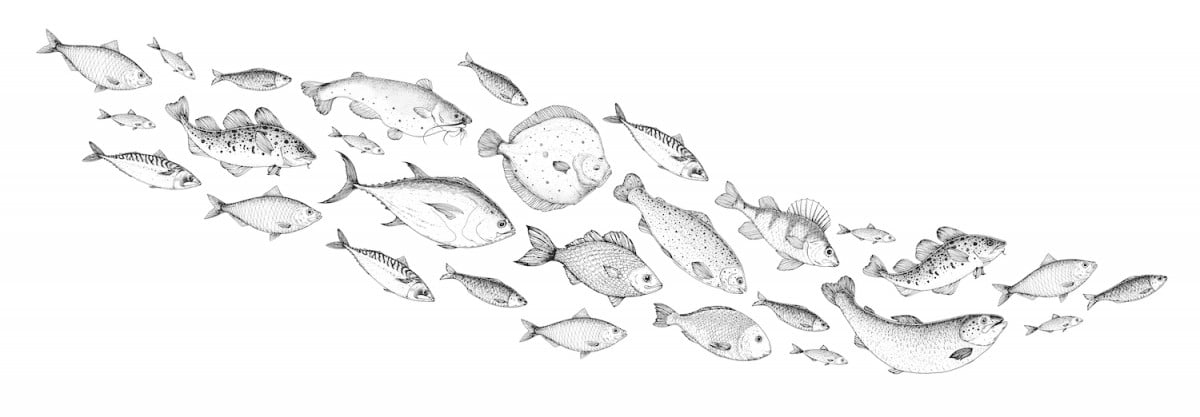Introducing PISCES, a new data navigation tool to inform alternative seafood development

Overfishing, bycatch, greenhouse gas emissions, and ecosystem damage resulting from our current seafood production methods threaten global health. We desperately need to think outside the box (or rather, outside the offshore open-net pen) to find more sustainable ways of feeding ourselves. Plant-based and cultivated seafood products will allow us to continue eating the foods we love while substantially mitigating the negative consequences of conventional seafood production for the world around us.
Better data will lead to better seafood.
To produce alternative seafood products that truly match their conventional counterparts on key attributes like taste, texture, color, and aroma, we need to understand those products at the cellular and molecular level. Fortunately, a lot of research has already been done that may help in this area—and we’ve put together a resource to help navigate it.
GFI’s Sustainable Seafood Initiative has begun compiling resources relevant to individual seafood species to position available data in a useful context for alternative seafood development. We’re excited to announce the initial Beta launch (pun intended) of the Phylogenetic Index of Seafood CharactEriStics (PISCES), which is intended as a resource for researchers and companies pursuing plant-based and cultivated seafood.
PISCES V0.1 contains several types of species-associated data:
- The scientific name, common name, and a link to its Fishbase or Sealifebase page (if one exists)
- A link to any available genome and/or mitochondrial genome sequences
- Any cell lines that might be relevant to cultivated seafood (whether publicly available or not)
- Relevant academic publications tagged according to species and topic(s)
- Nutritional data
- Data on volatile compounds that potentially contribute to flavor and smell
- Global, species-level ex-vessel prices originally sourced from FAO data
- Species-level data on greenhouse gas emissions
A user guide for PISCES is available here.
The current version of PISCES only scratches the surface of what we think is needed to support the growing cultivated and plant-based seafood industries. Given the lack of any equivalent centralized resource tailored to the alternative seafood research community, we hope that PISCES V0.1 will help to save researchers some time that would have otherwise been spent hunting down data and tools. At the same time, we will be actively working to make PISCES better and more comprehensive.
Whereas the current version of PISCES simply organizes existing information in a more accessible, user-friendly form, we will also be working with researchers to generate new empirical data that will be integrated into future releases. You can read about our plans for characterization of seafood products here.
Species within PISCES V0.1 can be visualized according to their taxonomic relationships, so that even if your species of interest does not have much data available, it’s easy to see whether there might be suitable data from a related species. Evolutionary distances are not represented here, but this is planned for future versions.
Our goal is for PISCES to eventually be a one-stop resource for everything you might want to know about a given species in order to guide the product development process for convincing and delicious alternatives. We hope you will find it useful!
For more information on GFI’s Sustainable Seafood Initiative and our work to advance alternative seafood, visit www.gfi.org/seafood. If you have suggestions for how we can make future versions of PISCES better, please let us know.

